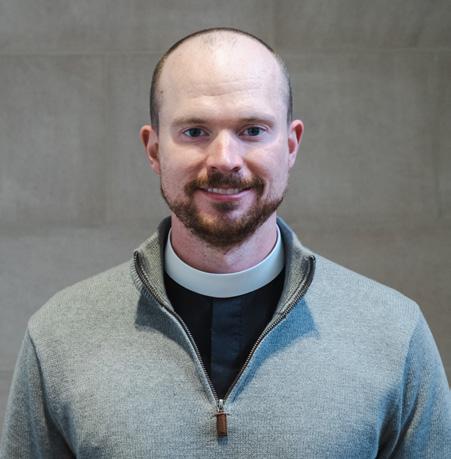
3 minute read
Bread in the Wilderness
The Rev. John Kennedy
Are you hungry? I don’t just mean physically; I mean existentially, spiritually. Now seems to be a time when, perhaps not unlike other times, so many of us are hungry — feeling a little empty. The poet Christian Wiman said nihilism is the cultural atmosphere; the air we breathe nowadays. This simply does not nourish the soul; the spirit; the heart. Bruce Springsteen (another great poet) sang “everybody’s got a hungry heart.”
Advertisement
A common metaphor for the Christian life has been that of a pilgrimage. As Moses and the Israelites wandered in the desert between their slavery in Egypt and their freedom in the Promised Land, so do we live — and wander — in an inbetween time; the already and the not-yet of the kingdom of God. In the words of our patron Saint Paul, “For now we see in a mirror, dimly, but then we shall see face to face. Now I know only in part; then I will know fully, even as I have been fully known” (1 Corinthians 13:12).
To satisfy their hunger, the Israelites were given manna, a mysterious “bread from heaven” in their desert wanderings. Christians have long drawn a connection between manna and Holy Communion, the sacrament of Christ’s body and blood. Jesus talked about himself as “the true bread from heaven” (John 6:32). The Eucharist is spiritual food for our earthly pilgrimage, given to satisfy our hungry hearts.
The season of Lent is upon us, and what better time to deepen our devotion to what Thomas Merton called “the greatest of all the sacraments… in which Christ not only gives us grace but actually gives us Himself”?
After all, the 40-day season of Lent is based on — and meant to draw us into solidarity with— Jesus’ 40 days in the desert before his public ministry.
A deeper engagement with the Eucharist can open new horizons in our faith and in our lives. As the Very Rev. Andrew McGowan, Dean of Berkeley Divinity School at Yale, recently shared during his forum at St. Paul’s, the Eucharist connects us with creation and labor; enacts our relationship of giving and gratitude with God; forms the Church as community; and inspires us to meet human need.
Wherever you are on your pilgrimage, I invite you to the Altar of Christ’s presence with renewed intention during the season of Lent.
In particular, I invite you to make a Lenten discipline of joining us for worship both on Sunday mornings and Wednesday evenings, where we will celebrate and be fed by the bread of heaven and cup of salvation. Following Wednesday worship, we will break bread together and discuss Thomas Merton’s book The Living Bread, in which he plumbs the depths of the Eucharist.
Through this great sacrament of Christ’s abiding love and presence, may know in the depths of your being that God is with you — and with us — always.


